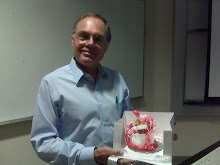Sifting Through Tragedy
The violent rampage of 22-year-old UC Santa Barbara student Elliot Rodger is national news. Why did he kill six and wound 13 people? His emailed "manifesto" and disturbing YouTube videos offer clues. Why does he have a fan page on Facebook? Is the intense media coverage of the killings and the grieving that has followed little more than exploitation of a tragic situation? The Los Angeles Times reports.
Questions...
•Does the Internet make lonely and isolated people more lonely and isolated?
•Does the Internet make people more extreme in their views?
•Should police call people in for questioning or search their homes based on violent online rants? Should school administrators or employers take action based upon violent online rants?
•Is the news media serving a vital function of democracy by starting a conversation about what we should do about people like Elliot Rodger? Or are they simply exploiting tragedy and grieving for profit?
Labels: cybercrime, firstamendment, internet, mediaeffects, news, newsgathering, privacy, socialnetworking

